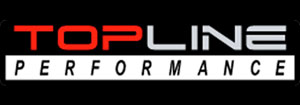Why Fuel System Is The Most Important Part Of Your 4×4 Drive
Even though most of the 4×4 vehicle drivers do have a good and clear knowledge on the fuel system of their vehicle, they fail to understand the need of fuel system maintenance for their vehicle. If you are planning to hit the road for a long vacation this summer, we highly recommend you to take your vehicle to a reliable off road vehicle repair shop and ensure that the fuel system of your vehicle is in excellent working condition.
Before we discuss the significance of fuel system maintenance for off road vehicles, let us learn the ins and outs of your vehicle’s fuel system and the components that make it up. The components in a 4×4 drive’s fuel system include:
- Gas Tank – The container for the fuel of your vehicle, holding either diesel or gas.
- Fuel Lines – The hose that serves the purpose of transferring fuel from the gas tank to the engine.
- Fuel Filters – The filter that prevents dirt or grime from getting into the fuel lines that could clog the injectors and cause serious issues to your 4×4.
- Fuel Pumps – The pump that pushes the fuel into your vehicle’s fuel injectors.
- Fuel Injectors – The pump that launches a stream of fuel spray to \ the engine.
- Spark Plugs – The component that ignites the internal combustion in the engine of your vehicle.
The Need for Regular Maintenance
The most significant part of the fuel system of your vehicle is fuel injectors. When they are clogged, the tiny nozzles in the system only pushes out a grimy glop rather than a thin mist of the fuel. Consequently, the spark plugs fail to fully ignite, which means that the engine fails to create the right amount of power. If you are in this scenario, you will need to immediately take your vehicle to an auto repair shop to fix the issue.
The main thing that clogs the fuel system of your off road vehicle is surprisingly the fuel itself. This is due to the fuel varnish deposits, which builds with time. These deposits clog up the piston and injector nozzle and create issues in the 4×4 drive. However, proper maintenance of your vehicle and regular inspection can help you prevent the issue.

